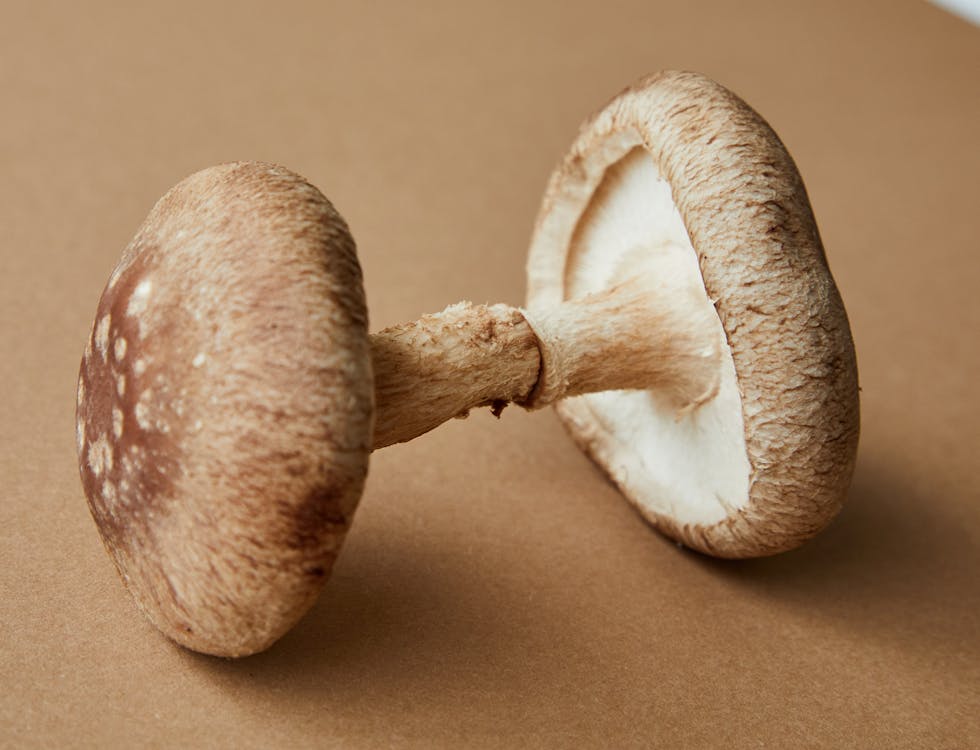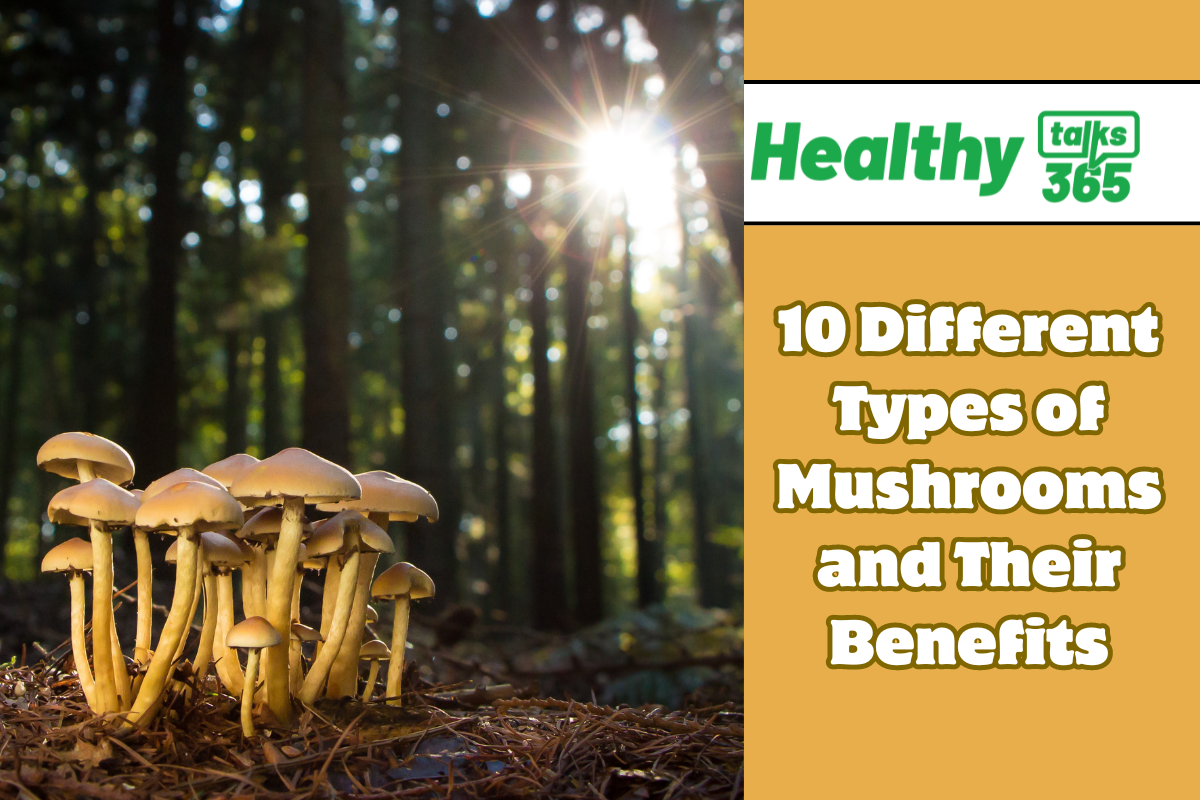10 Different Types of Mushrooms and Their Benefits
Shiitake
Shiitake mushrooms (Lentinula edodes) are one of the most popular and widely cultivated mushrooms worldwide, known for their rich, savory flavor and numerous health benefits. Originating from East Asia, shiitake mushrooms are not only a staple in Asian cuisine but also valued for their medicinal properties. They are a great source of essential nutrients, including vitamins B and D, selenium, zinc, and dietary fiber.
Shiitake mushrooms are particularly renowned for their immune-boosting properties. They contain polysaccharides like lentinan, which have been shown to enhance immune function and may have anti-tumor effects. Lentinan has been used as an adjunct treatment in cancer therapy to improve the body’s defense mechanisms. Additionally, shiitake mushrooms possess antiviral, antibacterial, and antifungal properties, making them effective in fighting infections.
Read Also:
Healthy Foods For Keeping Healthy Weight In Winters Cold
Reishi
Reishi mushrooms (Ganoderma lucidum), also known as Lingzhi, are often referred to as the “mushroom of immortality” due to their extensive use in traditional Chinese medicine and their purported health benefits. Reishi mushrooms are distinct for their glossy, red-brown caps and woody texture. They are typically consumed in powdered form, as teas, or as dietary supplements rather than eaten fresh due to their tough, bitter nature.
One of the most well-known benefits of reishi mushrooms is their potential to boost the immune system. They contain a variety of bioactive compounds, including polysaccharides, triterpenoids, and peptidoglycans, which enhance immune function by increasing the activity of white blood cells. These immune-boosting properties make reishi mushrooms valuable in fighting infections and potentially reducing the risk of certain cancers.
Maitake
Maitake mushrooms (Grifola frondosa), also known as “hen of the woods,” are prized for their unique, frilly appearance and potent health benefits. Native to Japan and North America, maitake mushrooms grow in clusters at the base of trees, particularly oak trees. They are renowned not only for their delicious flavor but also for their medicinal properties, making them a valuable addition to both culinary and health practices.
Maitake mushrooms are rich in essential nutrients, including vitamins B and D, potassium, and fiber. They are also an excellent source of beta-glucans, a type of polysaccharide that has been extensively studied for its immune-boosting properties. Beta-glucans enhance the activity of the immune system by activating macrophages and natural killer cells, which are essential for fighting infections and cancer cells.
Regular consumption of maitake mushrooms can help strengthen the immune system and improve the body’s ability to ward off illnesses. Maitake mushrooms also support cardiovascular health. They contain compounds that can help lower blood pressure and reduce cholesterol levels, thereby decreasing the risk of heart disease.

Turkey tail
Turkey tail mushrooms (Trametes versicolor) are named for their striking resemblance to a wild turkey’s colorful tail feathers. These mushrooms are found worldwide and have been used in traditional Chinese medicine for centuries due to their potent health benefits. Turkey tail mushrooms are renowned for their immune-boosting properties and are commonly consumed in supplement or tea form rather than as a culinary ingredient.
Turkey tail mushrooms also possess powerful antioxidant properties that help protect the body from oxidative stress and inflammation. Chronic inflammation and oxidative damage are underlying factors in many chronic diseases, including cardiovascular disease, diabetes, and neurodegenerative disorders. By neutralizing free radicals and reducing inflammation, turkey tail mushrooms contribute to overall health and disease prevention.
Read Also:
11 Best Ways to Improve Your Digestion
Cordyceps
Cordyceps is a unique and fascinating type of mushroom known for its parasitic growth on insect larvae. The most well-known species, Cordyceps sinensis and Cordyceps militaris, have been used in traditional Chinese medicine for centuries to enhance vitality and treat various ailments. These mushrooms are highly valued for their potential to boost energy, improve athletic performance, and support overall health.
One of the primary benefits of cordyceps is its ability to enhance energy levels and combat fatigue. Cordyceps is known to improve the body’s utilization of oxygen and increase ATP production, which is the primary energy currency of cells. This makes cordyceps particularly beneficial for athletes and individuals seeking to improve their physical performance and endurance. Studies have shown that cordyceps supplementation can enhance exercise performance by increasing aerobic capacity, reducing fatigue, and speeding up recovery.
Lion’s mane
Lion’s Mane (Hericium erinaceus), recognized by various names such as Pom Pom Mushroom, Monkey Head Mushroom, and Brain Mushroom, reflects its unique appearance resembling a lion’s mane. This distinctive mushroom is celebrated not only for its culinary appeal but also for its potent medicinal properties, particularly in traditional Asian medicine. Its ability to support cognitive health and neurological function has garnered significant attention in modern research, making it a popular choice for enhancing brain performance and overall well-being.
This unique mushroom has been prized for centuries in traditional Chinese medicine for its cognitive and neurological benefits. Lion’s Mane contains bioactive compounds, including hericenones and erinacines, which stimulate the production of nerve growth factor (NGF), a protein crucial for the growth and maintenance of neurons. This makes Lion’s Mane particularly beneficial for brain health, potentially enhancing memory, focus, and overall cognitive function.
Oyster mushrooms
Oyster mushrooms (Pleurotus ostreatus) are a popular and versatile type of edible mushroom known for their delicate texture and mild, slightly sweet flavor. They are commonly used in a variety of culinary dishes around the world due to their ability to complement a wide range of ingredients. Nutritionally, oyster mushrooms are low in calories but rich in essential nutrients, including vitamins B and D, potassium, iron, and dietary fiber.
They are also a good source of antioxidants, which help protect the body from oxidative stress and inflammation, potentially reducing the risk of chronic diseases. One of the standout benefits of oyster mushrooms is their potential to support heart health. They contain compounds like beta-glucans and ergothioneine that can help lower cholesterol levels, improve blood circulation, and reduce inflammation. Additionally, oyster mushrooms have been studied for their immune-boosting properties.

Enoki mushrooms
Enoki mushrooms (Flammulina velutipes) are easily recognizable by their long, thin stems and small, white caps. They are a staple in Asian cuisine, particularly in Japanese, Chinese, and Korean dishes, and are often used in soups, salads, and stir-fries. Enoki mushrooms have a crisp texture and a mild, slightly fruity flavor that adds a delightful crunch to various dishes. Nutritionally, enoki mushrooms are low in calories but packed with essential nutrients, including vitamins B and D, potassium, and dietary fiber. They are also a good source of antioxidants, which help protect the body from oxidative damage and support overall health.
One of the notable health benefits of enoki mushrooms is their potential to boost the immune system. They contain bioactive compounds like polysaccharides and beta-glucans that can enhance immune function by stimulating the activity of white blood cells. Additionally, enoki mushrooms have been studied for their potential anti-cancer properties. Some research suggests that the polysaccharides in enoki mushrooms may inhibit the growth of cancer cells and reduce tumor formation.
Chanterelle
Chanterelle mushrooms (Cantharellus cibarius) are highly prized by chefs and food enthusiasts for their distinct, trumpet-like shape and exquisite flavor. They have a fruity aroma with a hint of apricot and a slightly peppery taste, making them a gourmet ingredient in many culinary dishes. Chanterelles are typically found in the wild, often growing in symbiotic relationships with trees in forested areas.
Nutritionally, chanterelle mushrooms are rich in vitamins and minerals, including vitamins A, C, D, and B-complex, as well as potassium, copper, and selenium. They are also a good source of dietary fiber and antioxidants, which help protect the body from oxidative stress and support overall health.
Read Also:
Porcini
Porcini mushrooms (Boletus edulis) are highly esteemed for their rich, earthy flavor and meaty texture, making them a favorite among chefs and food lovers worldwide. Also known as “king bolete” or “cep,” porcini mushrooms are often used in Italian and French cuisine, particularly in risottos, soups, and pasta dishes. Nutritionally, porcini mushrooms are a powerhouse of essential nutrients, including vitamins B and D, potassium, iron, and dietary fiber. They are also an excellent source of antioxidants, which help protect the body from oxidative stress and reduce inflammation. One of the notable health benefits of porcini mushrooms is their potential to support digestive health.
They contain a significant amount of dietary fiber, which promotes healthy digestion and regular bowel movements. Additionally, the polysaccharides in porcini mushrooms can act as prebiotics, nourishing beneficial gut bacteria and supporting a healthy gut microbiome. Porcini mushrooms also have immune-boosting properties, thanks to their high content of beta-glucans and other bioactive compounds that enhance the activity of immune cells.





